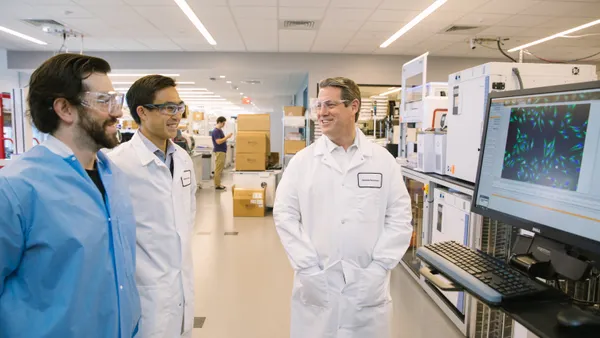Biotechnology accelerates drug discovery and offers innovative approaches to dealing with some of humanity’s most important healthcare challenges. In fact, recent reports indicate that over 50% of drug development comes from biotech innovation. By their nature, biotechs are inventive and often rely on various solution providers to complete the drug development process and bring their therapeutic discoveries to patients.
CRO Support
Contract research organizations (CROs) offer a unique value proposition for biotech companies; biotech firms can leverage their role as innovation leaders to form strategic partnerships with CROs, which can provide essential support for their research and development needs. That said, the success of any working partnership depends on choosing the right partner. According to a 2022 McKinsey & Company report, biotech companies are looking to partner with CROs that can deliver strategic advice and leading-edge drug development solutions. A CRO with extensive expertise across various therapeutic areas and solutions—from preclinical to formulation and manufacturing to clinical research—and that provides lean and agile service delivery, would effectively meet many of the needs of biotech firms.
Additionally, leading CROs have established relationships with key drug development players, which can benefit biotechs. Strong connections with global regulatory authorities and understanding of regulatory guidelines, for example, allow open communication and pertinent strategic guidance. CROs typically also have robust networks of patients, caregivers, and other clinical trial resources that will support a biotech company’s development goals, from discovery through clinical trials.
Long-Term Vision
Biotech companies often outsource therapeutic development to different providers who deal with each need (from preclinical, to clinical to bioanalysis to manufacturing) as it arises. The downside with this approach is a lack of continuous, long-term vision, multiple meetings and constant cross communication as well as the administrative burden of negotiating and managing contracts with multiple service providers. By contrast, early engagement with a top-tier, multi-service CRO/CDMO like Altasciences, working under a single nondisclosure agreement (NDA) across services and a single master service agreement (MSA), provides efficiency, cross-functional insight, seamless communication, and scheduling and continuity that easily transfers across the development continuum.
The Value of Partnership
Partnering with a single, dedicated CRO/CDMO that offers preclinical, clinical, bioanalytical, and CDMO expertise provides biotech companies with access to coordinated early data and information, ensuring informed and timely downstream decision-making. A CRO partner offering multiple drug development solutions gains better visibility into the program's progress, allowing the program manager to share insights, strategies, and solutions with the client as the project evolves.
Steve Mason, Co-chief Operating Officer of Altasciences, says, “It’s really about timely communication and having the systems and processes to manage all ongoing studies and programs to safely get to the deliverable faster, without compromising on quality.”
By building a long-term partnership with a CRO that offers the services they need, biotech companies can shift from a focus on transactional contracts in the short term to optimizing costs and building value in the long term. As early development demands faster timelines, earlier proof of concept, and cost efficiencies, biotechs rely on the greater breadth and depth of capability that multi-service, integrated CRO/CDMOs offer to maximize their probability of success.
Models for Successful Partnership
Integrated CROs are increasingly prioritizing partnerships, customizing solutions, and redefining their processes to maximize value for their clients. There is a wide range of contracting models available, such as one-off projects, preferred provider, and strategic partnership agreements, strategic staffing, and full-service models. The more agile CROs offer tailored blended models to suit their clients’ needs based on size, budget, capacity, and development stage.
“When a sponsor works with a CRO with a specific area of focus or expertise, they’re working with a CRO that is mostly invested in what happens to that therapeutic in that moment and rarely considers the next phases of development,” explains Steve Mason, Co-chief Operating Officer at Altasciences. “That presents a challenge for sponsors as they’ll have to collaborate with many, many CROs before meeting their end goal.”
Whether a biotech company's long-term goal is marketing approval or divestment, the success of its drug development programs relies on efficient and agile early development, supported by effective partnerships. An integrated, multi-service early development CRO, having successfully managed hundreds or even thousands of programs, brings invaluable combined knowledge and experience to facilitate the biotech's work. A partnership model that provides guidance, leadership, and access to expertise when needed, steering the biotech towards its intended goal, is a significant contribution a CRO offers.










